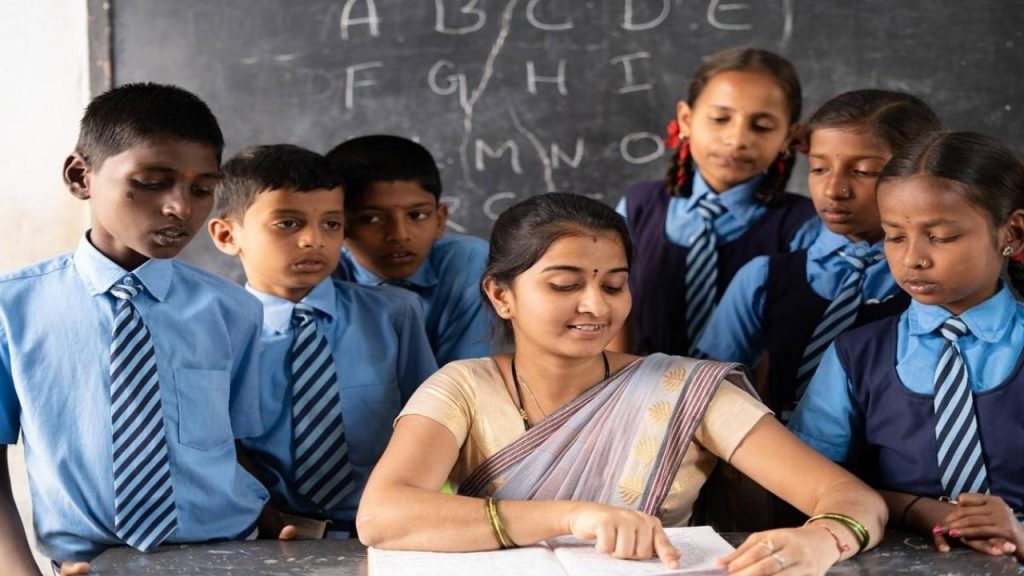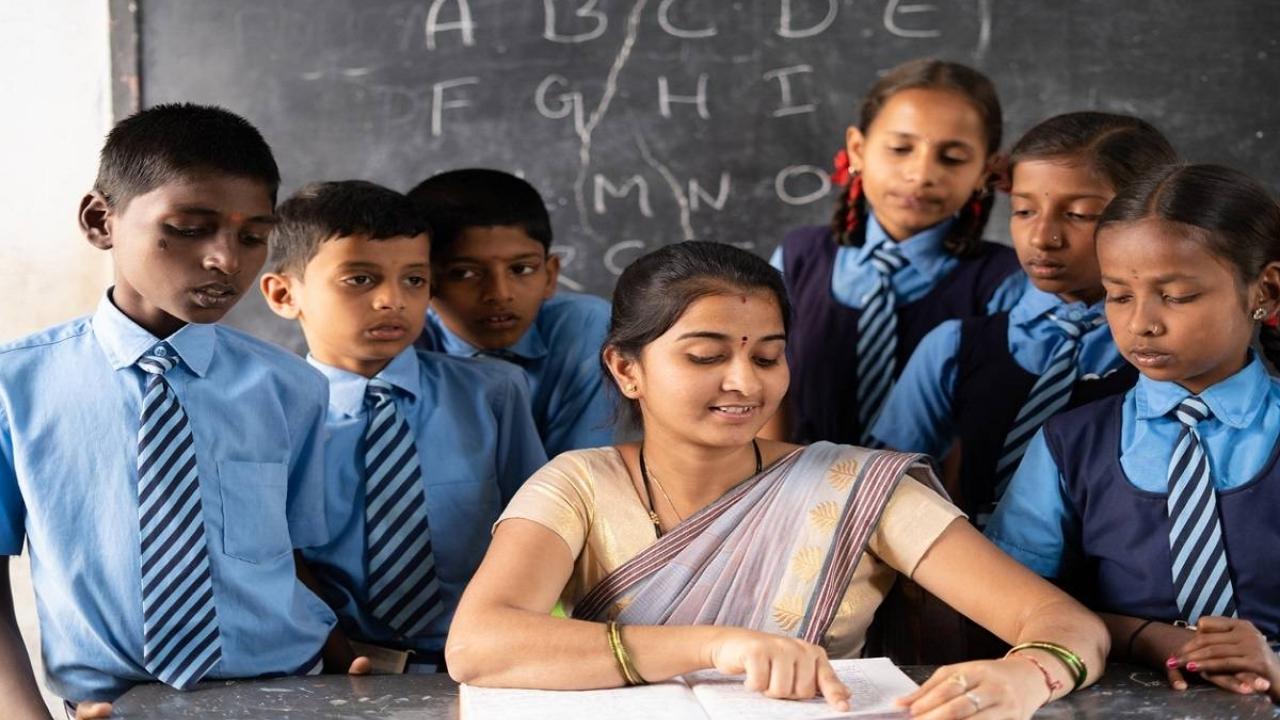When it comes to education, especially in the context of India, the question of who should be allowed to teach is crucial for shaping future generations. Recently, the Orissa High Court made a significant ruling on this matter, emphasizing that candidates with a Bachelor of Education (B.Ed) qualification should be appointed as junior teachers in the state. This ruling carries important implications not just for the teachers themselves, but also for the state’s education system as a whole.

In this article, we’ll dive into the key details surrounding this ruling, discuss its impact on education in Odisha, and explore what this means for both aspiring teachers and educational policy in India. Whether you’re a teacher looking to understand the implications of this ruling or a policymaker interested in staying updated on educational reforms, this article breaks everything down in a straightforward and easy-to-understand manner.
B.Ed Qualified Candidates Should be Appointed as Junior Teachers
| Key Point | Details |
|---|---|
| Topic | B.Ed Qualified Candidates Should Be Appointed as Junior Teachers |
| Court Ruling | Orissa High Court states that B.Ed qualified candidates must be appointed as junior teachers |
| Impact on Teachers | This ruling impacts 15 candidates initially excluded due to possessing a two-year B.Ed (Special Education) degree |
| Government Directive | Odisha government must align recruitment with updated educational standards |
| Relevant Law | The court overturned the reliance on outdated NCTE regulations that penalized modern B.Ed qualifications |
| Source for Reference | Orissa High Court Verdict on Junior Teacher Appointment |
The recent ruling by the Orissa High Court has brought much-needed clarity to the issue of teacher recruitment in Odisha. By emphasizing the legitimacy of the two-year B.Ed qualification, the court has paved the way for a more inclusive and fair hiring process in the education sector. This decision is a positive step forward for teachers and students alike, ensuring that the most qualified candidates are given the chance to teach and inspire future generations.
Whether you are a teacher in Odisha or someone aspiring to join the field of education, this ruling is an important milestone. It shows that educational policies must evolve to keep up with the times and that fairness and equal opportunity should always be the guiding principles in teacher recruitment.
Background: Understanding the B.Ed Qualification in India
To begin, let’s break down what the Bachelor of Education (B.Ed) qualification entails and why it’s important for educators. A B.Ed is a professional degree designed to prepare individuals for a career in teaching. In India, the B.Ed course typically takes two years to complete and includes both theoretical and practical training. It equips teachers with the necessary skills to manage classrooms, understand student psychology, and design effective teaching strategies.
In the past, the National Council for Teacher Education (NCTE) had a one-year B.Ed course, but that was discontinued in 2014. It was replaced by a two-year program, which better prepares teachers for the challenges of modern classrooms. However, despite this shift, there were instances where individuals holding the newer two-year qualification were disqualified for certain teaching posts due to outdated regulations.
The Orissa High Court Ruling
The Orissa High Court’s decision to uphold the validity of the two-year B.Ed qualification has far-reaching implications. In the case in question, the court reversed the exclusion of 15 candidates who had been initially removed from a merit list for junior teacher appointments. The reason for their exclusion was the fact that they possessed a B.Ed (Special Education) degree that was two years long, instead of the now outdated one-year qualification.
The court pointed out that the outdated NCTE notification, which was used to justify their disqualification, was not relevant anymore. With the one-year B.Ed course being obsolete, penalizing candidates who had completed the current two-year program was unjustifiable. The ruling emphasized that these candidates were just as qualified as their peers who held a one-year degree.
Practical Advice for Teachers: If you’re an aspiring teacher, especially in Odisha, this ruling reinforces the idea that your two-year B.Ed qualification is not just valid but should be recognized. If you’re planning to apply for teaching positions, make sure you have all the necessary documentation and that your qualifications align with the latest standards set by educational authorities.

Why Is This Ruling Important?
This ruling is significant for several reasons, especially when considering the educational landscape in India. Here’s why:
1. Promotion of Equal Opportunity
The court’s decision ensures that all candidates, regardless of whether they pursued a one-year or two-year B.Ed course, are given the same opportunities. This is a win for fairness and equality in the recruitment process, particularly for those who may have been unfairly excluded due to outdated regulations.
2. Alignment with Updated Educational Standards
The ruling also encourages a shift toward more up-to-date qualifications in education. The B.Ed qualification has evolved, and it’s essential that recruitment policies reflect this change. The two-year program provides deeper and more comprehensive training, which benefits both teachers and students.
3. Boost for Teacher Recruitment
This decision may help fill teaching vacancies more efficiently, as it allows a larger pool of qualified candidates to apply for junior teacher positions. By recognizing the two-year B.Ed qualification, the state is ensuring that it doesn’t miss out on talented and well-prepared teachers.
The Process of Becoming a Junior Teacher in Odisha
If you’re a qualified teacher or are considering a career in teaching in Odisha, it’s essential to understand the process. Here’s a breakdown of the typical steps involved:
Step 1: Complete the B.Ed Degree
To become a junior teacher, you must first complete your B.Ed degree. As discussed, the two-year program is the standard across most colleges and universities in India today. This will provide you with the knowledge and skills needed to teach effectively.
Step 2: Stay Updated on Recruitment Notifications
The Odisha government and various educational bodies regularly release notifications for teacher recruitment. These notifications will outline the eligibility criteria, qualifications required, and the number of positions available. Be sure to regularly check the official websites for updates.
Step 3: Apply for the Position
Once the recruitment notification is out, submit your application. Ensure that all documents, including your B.Ed degree and any other supporting materials, are ready and accurate.
Step 4: Appear for the Examination/Interview
Many recruitment processes involve an entrance examination or an interview. This is where your knowledge and teaching aptitude will be tested. Be prepared to showcase your understanding of pedagogy, subject knowledge, and classroom management skills.
Step 5: Wait for the Results
Once the examination and interview processes are completed, results will be published. If you are successful, you will be appointed as a junior teacher. The court ruling ensures that your two-year B.Ed qualification will be fully considered in this process.
The Larger Impact on Education in India
This ruling does not only affect those in Odisha, but could also set a precedent for other states. It underscores the need for educational policies that reflect the reality of the evolving education landscape. With changes in teacher training programs, curriculum, and the overall teaching environment, it’s important that hiring practices also evolve to keep up.
For other states considering similar reforms, this ruling might be a sign that it’s time to revisit outdated policies and update them in line with current educational standards. The ultimate goal should be to ensure that every classroom is filled with qualified and capable educators, ready to meet the needs of the next generation.
Yuvodaya Honors NEET and JEE Achievers: Celebrating Excellence in Education
Odisha’s Higher Education Overhaul Targets Low-Enrolment Institutions
Odisha’s Higher Education Institutions to Offer Skill-Based Degree Programs in 2025
FAQs
Q1: Can I apply for a junior teacher position in Odisha with a two-year B.Ed qualification?
Yes, you can. The Orissa High Court has ruled that candidates with a two-year B.Ed qualification are eligible for junior teacher positions.
Q2: How do I know if my B.Ed degree is valid?
Ensure that your B.Ed degree is from a recognized university or institution, and check if it aligns with the current regulations set by the National Council for Teacher Education (NCTE).
Q3: What is the typical salary for a junior teacher in Odisha?
Salaries vary depending on experience, qualifications, and the specific educational body. On average, junior teachers in Odisha can expect to earn between ₹20,000 and ₹30,000 per month.
Q4: Are there other qualifications besides B.Ed that I need to be a junior teacher?
In most cases, the B.Ed qualification is sufficient. However, some positions may require additional certifications, such as CTET (Central Teacher Eligibility Test) or OTET (Odisha Teacher Eligibility Test).





